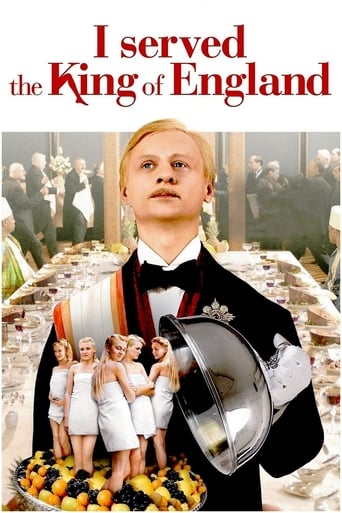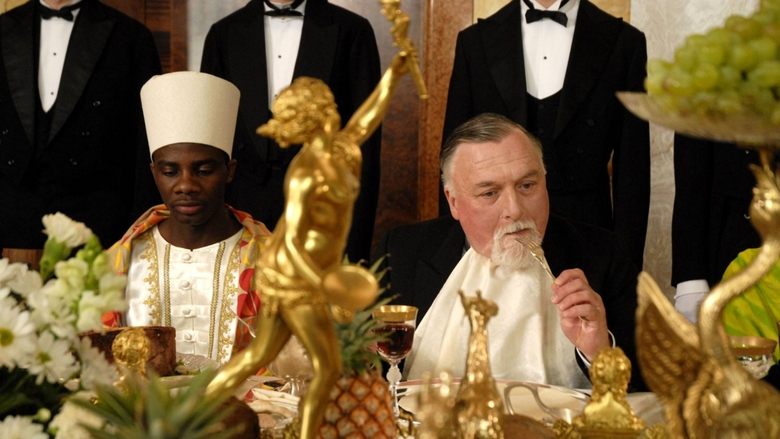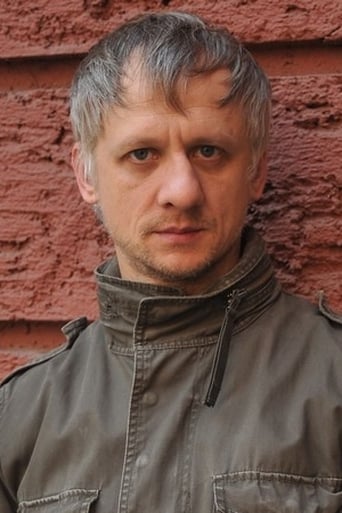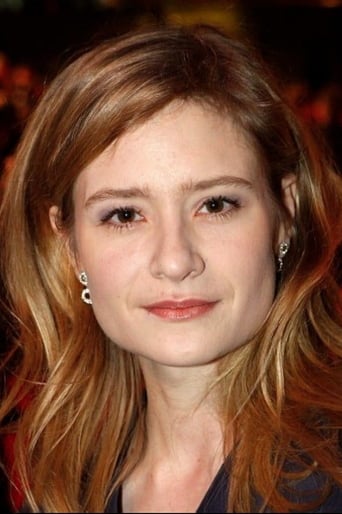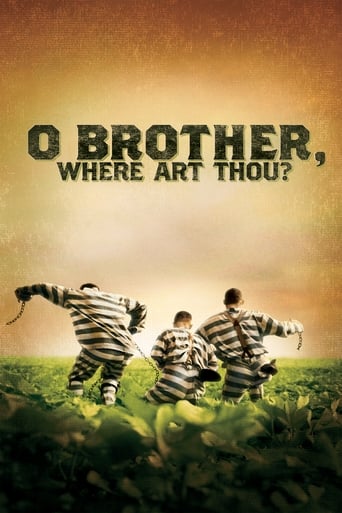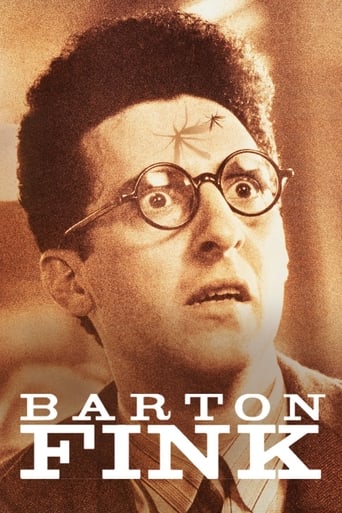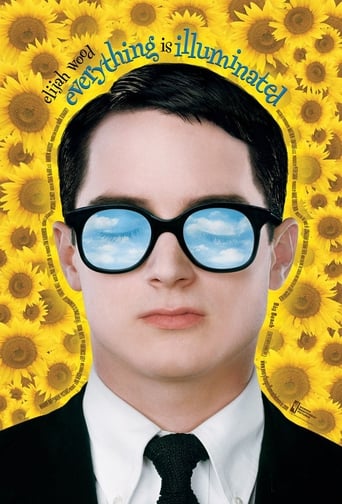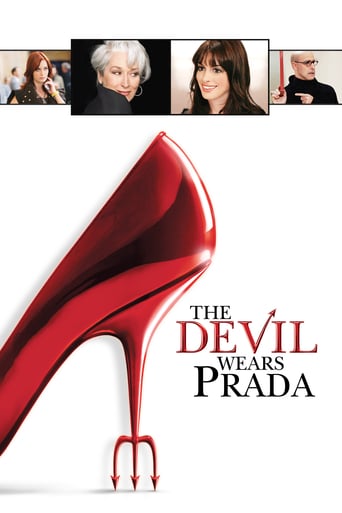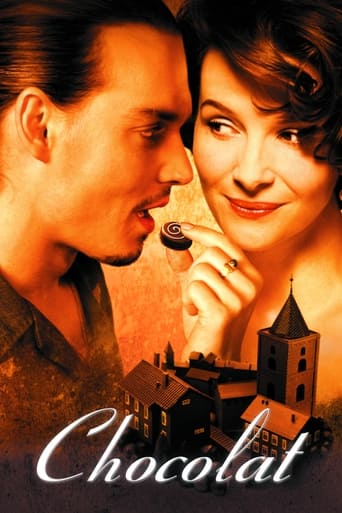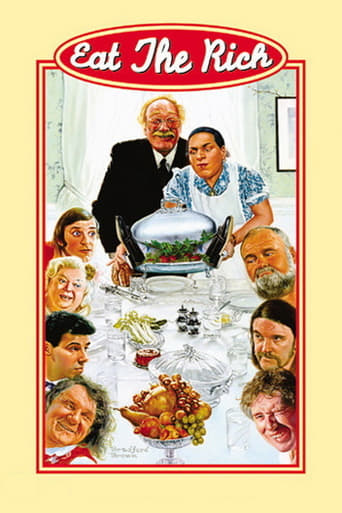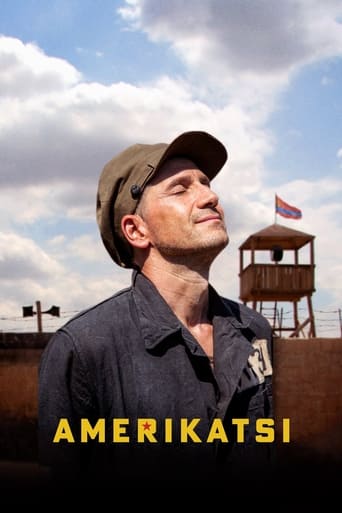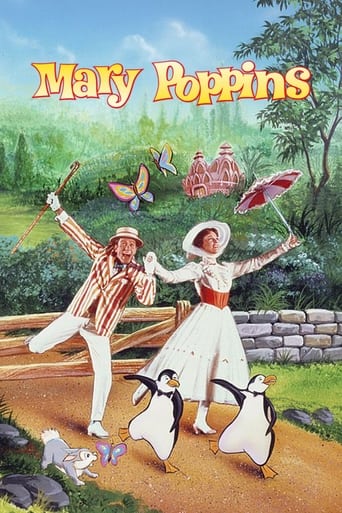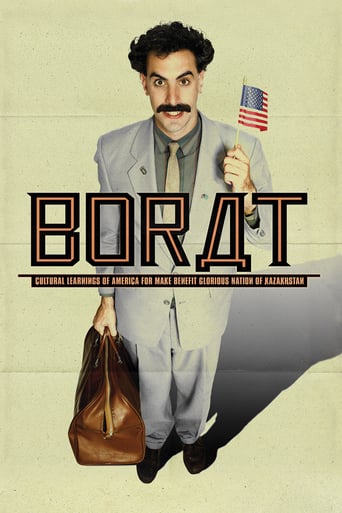I Served the King of England (2008)

Prague, Czechoslovakia, during the inter-war period. Jan Dítě, a young and clever waiter who wants to become a millionaire, comes to the conclusion that to achieve his ambitious goal he must be diligent, listen and observe as much as he can, be always discreet and use what he learns to his own advantage; but the turbulent tides of history will continually stand in his way.
Watch Trailer
Cast


Similar titles
Reviews
I Served the King of England is very ambitious. It condenses an epic novel into two hours and squeezes in more styles than a catwalk. There are nods to the wit of Charlie Chaplin. The visual eulogies of Peter Greenaway. Penitentiaries, bars, brothels, woods, invading armies. All are collected in a dizzying montage as Jan Díte reviews the highs and lows of his life and loves in flashback.He has just been released from Prague Correctional Facility, having served almost 15 years. He is also in rather humble circumstances. This seems to contrast with his lifelong and apparently successful ambition to become a millionaire. The first half of the film has a theatrical feel of unreality – much like a musical. Serving lad Díte manages to score with a local beauty at the nearby bordello. He then get various jobs that involve him working with sophisticated women of pleasure, or in top hotels, or sometimes both together. His short stature enables him to play many tricks, like surreptitiously throwing a handful of coins on the ground for the pleasure of watching rich men get down on their hands and knees with their bums in the air. One of his favourite penchants with the ladies, on the other hand, is to ornament their naked and prostrate forms with anything from flowers, to fruit, to funds from his growing pocket book. One particularly striking moment is when he decorates a naked brothel girl (who looks worryingly like Kylie Minogue) in large margarita daisies. The scene is as arresting as the nude-and- rose-petals shot in American Beauty, or the female-served-for-dinner in The Cook The Thief His Wife & Her Lover.Menzel's taste for a decadent protagonist is in no way sullied by shame. His whores are creatures of beauty: "The scent of raspberry trailed behind her. She stepped out in that silk dress, full of peonies, and bees hovered around her like a Turkish honey store." ('Bees' you will note, not 'flies'.) The description follows an incident where the lady in question pours raspberry grenadine over herself - to stop Díte from getting into trouble.
This film, though technically good (lots of pretty and well choreographed scenes, beautiful women, and pretty good acting)is disturbing, and some people should probably avoid it. People who are overly sensitive to the horrors of Nazi brutality will probably find the film very offensive. That the main character is a savant oblivious to the dark side of the Third Reich does little to redeem the comedic value of the story. Also, nearly all of the women in the film are either prostitutes, Nazis or both. That was a problem for me. That said, the film makes some interesting and humorous comments about wealth and the value of money.
The works of Czech director Jiri Menzel constitute a tasty cocktail of humanism and laughter. In this film, the cocktail is personified in the words spoken by the narrator and lead character early in the film: "It was always my luck to run into bad luck." Menzel's innocent male country bumpkins have simplistic goals in life-get rich and charm the beautiful woman in their horizon. His films remind you of the social satire embedded in the works of Charles Chaplin and the visual gags in the cinema of Buster Keaton. Only Menzel's body of work has a dose of moral ambiguity. While Menzel's cinema is often mistaken as being solely his own genius, he actually rides on the shoulders of three major literary giants of the former CzechoslovakiaBohumil Hrabal, Vladislaw Vancura, and Zedenek Sverak. Menzel's cinema provides a convenient "easy read." of the fine literary tradition to which Milan Kundera belongs by bringing alive on screen slivers of statements and observations recorded by these novelists. Menzel's true gift is making the written word look attractive on screen with the use of imaginative visual gags. The spoken words (the writer's contribution) and carefully chosen actors serve as the pivot to enjoy the visual feast in Menzel's cinema. His mastery of visual comedy has made a major difference to Czech cinema being associated with comedy rather than drama, quite unlike other East European cinema where tragedies and serious drama overshadowed the comedy genre.This film happens to be the sixth work of Hrabal that Menzel has adapted on screen-the first being "Closely watched trains."Politicians find satire uncomfortable. It is not surprising that Hrabal's novel "I served the King of England" was banned for years. When ultimately Menzel made it into a movie in 2006 using Hrabal's script, it won the FIPRESCI prize at Berlin. Menzel's cinema (and Hrabal's novels) has considerable political and social criticism. The film opens with clemency/pardon given to a prisoner who has almost completed his jail term. Communist political bigwigs wish to ape the capitalists, without a clue of what is required to gain social respect. Hrabal's script is clearly critical of the communist regime: "People who said social work was ennobling were the same men who drank all night and ate with lovely young women seated on their knees.' Butlers act superior to their new masters who do not know social etiquette. The new Czech communist politicos bend over backwards to please any one with the remotest Russian credentials. It is no small wonder that Hrabal got into trouble with the authorities until the political regime changed in recent years. Apart from political criticism, social criticism of Czechs get liberally dished out in the film. When the physically short-statured waiter Jan Dite (literally translated as Johnny Child) throws coins on the floor for fun, rich and poor Czechs crawl without social distinction on the floor to pick up the money, allowing the short-statured waiter to look down at those he was serving and emerge physically and socially "tall" for a brief period. There is another line that Hrabal/Menzel uses to describe Czechs and their actions over the decades "Czechs do not fight warstherefore we were not invaded, we were annexed." These are lines that will make many laugh, but these lines could make the author/ the director unpopular with a few who cannot take self criticism.The quest for money and riches underpin this film in particular and much of Menzel's cinema. The film has the lead character selling sausages at a railway station. So engrossed is he in counting the change he has to return to a customer who has given him a big bank note, that the train pulls out with the angry customer fuming that he has been cheated. But Hrabal and Menzel had together done a similar scene in "Closely watched trains" where a train pulls out as the young hero is about to kiss his love with eyes closed, taking away his beloved girl whose eyes are open and is agitated that the kiss was missed.Money is a recurring theme in "I served the King of England." The hero dreams of being a millionaire. One colorful character keeps himself amused spreading out cash on the floor like a carpet. Money is what waiter's get if he is good and smart, enough to buy up the hotel. He gets a medal from an Ethiopian Head of State, modeled on the physical attributes of Haile Selassie; merely because he can bend down to receive it. He gets a fat tip because he is physically near to a rich guest doling out his largesse.After one has laughed sufficiently, one could reflect on the less obvious but darker side of Hrabal/Menzel's contribution to cinema. The women are lovely to look at. They bear a striking common factorthey are to be won. They are to be used, often as useful commodities. One Nazi girl even makes love, thinking of Hitler during the act. You do not see Hrabal and Menzel developing the women characters as they do their male ones. In this film, the anti-hero is dismissed from his job because he is not a good Czech."I served the King of England" are the spoken credentials of a respected waiter in the film as he trains the lead character of the film. Yet, the film is about a successful Czech who became a millionaire as he had dreamt, who married a Nazi and had enjoyed life when other Czechs were being led to the gas chambers, and was imprisoned when the Communists came to power. Hrabal and Menzel may have given us great comedy over six films. Evaluate the content closely and there is more to their work than pure comedy.
A solidly made film with some good performances, especially from Martin Huba as Skrivanek, the maitre d'. The film seems to linger too much on some of its set-pieces, usually involving naked women either bedecked with an assortment of fruit and flowers or being leered at by rich old duffers. This criticism might be a bit harsh as the sumptuous visuals are integral to the film but I did feel the pace slowing down a bit.The director, Jiri Menzel, is famous for another Hrabal adaptation, 'Closely Observed Trains' and may have been regarded as a safe pair of hands for this job. However, I do wonder whether a younger director would have made more of the adventurous weaving together of episodes in the book. That said, the film does have a real feel for the flavour and atmosphere of the book. The cast are particularly well chosen and there are some wonderfully characterful faces cropping up.In short, a pleasant experience but shouldn't garner any awards outside the Czech Republic.

